Abstract information
Abstract submission is now closed for 2016
If you have submitted an abstract but have not received a confirmation emall from the conference office please contact us to make sure we have received it.
Abstracts are are invited for:
Core and theme paper presentations
Symposia
Oral poster presentations
 Three categories of core and theme paper presentations to choose from: Three categories of core and theme paper presentations to choose from:
Research presentations; Innovation presentations and Issues for debate
Please contact the conference office with any queries you may have on
00 44 (0) 1954 252020
Included on this page (use the list of links here to navigate to the relevant information):
Three new categories for core and theme abstracts
The NET Organising Committee are always striving to improve the NET conference and to keep academic standards as high as possible. We have introduced three categories of abstract for core and theme papers to reflect the richness of the papers presented at NET. The three new categories are:
Abstracts for core or theme papers should be submitted under one of these new categories. To help you decide which category your abstract relates to please see below.
When submitting your abstract we would like you to use the structured headings that have been prepared for each category and are shown below. They are also available for you to download as a Word document template to use when you prepare your abstract. For further information and to download the document with the relevant structure headings please see: How to submit an abstract
| Research presentations |
Research papers should focus on the education of healthcare professionals and have implications for learning, teaching or assessment. They are intended as an opportunity to present a fully developed study, completed phase of a study, or a systematic review. Abstracts should acknowledge, wherever possible, the international relevance of the research. The study, or phase of the study, must be complete with appropriate data and findings available by the time of presentation.
Structured headings for research presentation abstracts
 Background, including underpinning literature and, wherever possible, the international relevance of the research Background, including underpinning literature and, wherever possible, the international relevance of the research
 Aim(s) and/or research question(s)/research hypothesis(es) Aim(s) and/or research question(s)/research hypothesis(es)
 Research methodology/research design, any ethical issues, and methods of data collection and analysis Research methodology/research design, any ethical issues, and methods of data collection and analysis
 Key findings and recommendations Key findings and recommendations |
| Innovation presentations |
Innovation papers are intended as an opportunity to present educational innovations/developments that have been implemented in one or a small number of sites and their contribution and value assessed. These papers are intended to trigger debate about how smaller-scale innovations may be useful in other settings. They may include reports of innovations in clinical practice, together with any implications for educational development and change.
Structured headings for innovation presentation abstracts
 Background, context and evidence base for the innovation, including, wherever possible, its international relevance Background, context and evidence base for the innovation, including, wherever possible, its international relevance
 Aim/focus of the innovation Aim/focus of the innovation
 Implementation of the innovation Implementation of the innovation
 Methods used to assess the innovation Methods used to assess the innovation
 Key findings Key findings |
| Issues for debate |
Papers presented in this category offer an opportunity to present a scholarly, conceptual, evidence-based, reflective perspective on a contemporary educational issue. Papers in this category should be well referenced, tightly structured and robustly argued. They should be designed to stimulate debate about the key issue(s) raised.
Structured headings for issues for debate abstracts
 Key concept(s) to be addressed, including, wherever possible, international relevance Key concept(s) to be addressed, including, wherever possible, international relevance
 Aim(s)/focus Aim(s)/focus
 Evidence base and literature informing the arguments Evidence base and literature informing the arguments
 Issues for debate Issues for debate |
Back to top
Conference themes
Core and theme paper abstracts should also relate to one of this year's themes below:
 Developing the future healthcare education workforce Developing the future healthcare education workforce
 Education in clinical practice and practice development Education in clinical practice and practice development
 Educational innovations and enhancement Educational innovations and enhancement
 E-learning/blended learning E-learning/blended learning
 Humanising healthcare education Humanising healthcare education
 Internationalisation and global challenges in healthcare education Internationalisation and global challenges in healthcare education
 Interprofessional learning and working Interprofessional learning and working
 Leadership in healthcare education Leadership in healthcare education
 Learning and teaching strategies Learning and teaching strategies
 Partnership working Partnership working
 Research in healthcare education Research in healthcare education
 Service user and carer engagement Service user and carer engagement
 Social, economic and policy drivers in healthcare education Social, economic and policy drivers in healthcare education
 Student experience and engagement Student experience and engagement
 Using simulation to enhance learning Using simulation to enhance learning
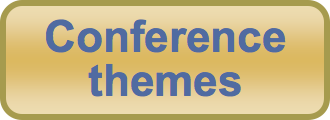 You can download full information about each of the conference themes here. You can download full information about each of the conference themes here.
Back to top
Core paper abstracts
Core papers set the scene and help guide the discussion and debate for the rest of the session. Your core paper must offer a broad, strategic healthcare education perspective, together with vision, depth, breadth and have a strategic/policy perspective to provide a suitable context to facilitate effective group discussion of relevant issues.
Any abstract submitted for consideration as a core paper, but which is not selected as a core paper, will automatically be put forward for selection as a potential theme paper or poster.
It is now an established practice that core presenters attend their entire theme session and work with their convenor to contribute to the ongoing debate throughout the session and to help summarise the key issues and points raised at the close of their theme session. This is a condition of acceptance.
Core presentations will be allocated 40 minutes and we suggest you allow a maximum of 25 minutes for the presentation followed by 15 for group discussion. If your abstract is chosen as a core paper, you will need to prepare the full text (2,000 words excluding references) by Monday 6 June 2016. The full text will be available to registered delegates on this website before the conference. They will also be on memory sticks included in the conference delegate packs and on the NET2016 Conference App.
Core paper abstracts should:
 set a high standard for other papers set a high standard for other papers
 display academic scholarship via conceptual analysis or research display academic scholarship via conceptual analysis or research
 demonstrate evidence of understanding of current research and relevant debates demonstrate evidence of understanding of current research and relevant debates
 consider transferability to a variety of settings and healthcare professions consider transferability to a variety of settings and healthcare professions
 generate new insights to stimulate discussion generate new insights to stimulate discussion
 address the interests of an international audience. address the interests of an international audience.
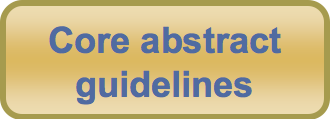 Full guidelines on submitting a core presentation abstract. Full guidelines on submitting a core presentation abstract.
Back to top
Theme paper abstracts
Theme papers are presented after the relevant core paper or as part of the shorter half-day sessions which will contain only theme papers. They will be allocated 25 minutes. We suggest you present for about 15 minutes (and no more than 20 minutes), leaving adequate time for discussion. Theme paper presenters are expected to attend the entire theme session to contribute to the ongoing debate and discussion.
Theme paper abstracts should:
 reflect academic rigour and scholarship reflect academic rigour and scholarship
 demonstrate evidence of understanding of current research and relevant debates demonstrate evidence of understanding of current research and relevant debates
 consider transferability to a variety of settings and healthcare professions consider transferability to a variety of settings and healthcare professions
 show clear implications for healthcare education tomorrow show clear implications for healthcare education tomorrow
 address the interests of an international audience. address the interests of an international audience.
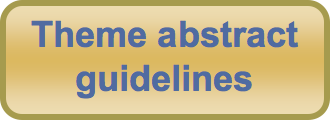 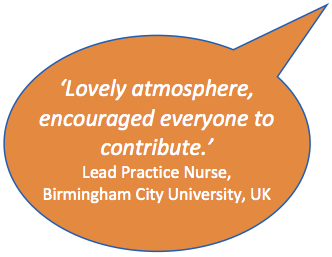
Full guidelines on submitting a theme presentation abstract.
Back to top
Symposium abstracts
A symposium provides an opportunity to explore a leading edge topic that may or may not be addressed by this year’s conference themes. A symposium should typically consist of three or four papers with a shared focus. Each symposium will be allocated 90 minutes, to include at least 25 minutes for debate and discussion.
We suggest your symposium title should give a clear indication of the subject matter, but should also be appealing to your audience – the symposia are presented concurrently so delegates are only able to attend one so make sure they choose yours!
Symposium abstracts should:
 display academic scholarship via conceptual analysis or research display academic scholarship via conceptual analysis or research
 demonstrate evidence of understanding of current research and relevant debates demonstrate evidence of understanding of current research and relevant debates
 consider transferability to a variety of settings and healthcare professions consider transferability to a variety of settings and healthcare professions
 show clear implications for healthcare education tomorrow show clear implications for healthcare education tomorrow
 address the interests of an international audience. address the interests of an international audience.
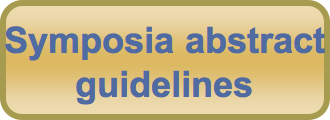 Full guidelines on submitting a symposium abstract. Full guidelines on submitting a symposium abstract.
Back to top
Oral poster presentation abstracts and best poster prize
Posters must address topical and innovative issues relating to the future of healthcare education – they do not need to relate to this year's conference themes. They also allow you to present preliminary findings or to explore a project/study that may not yet be complete. Posters may include reports of clinical practice developments, provided they include implications for educational development and change.
The new oral poster presentation session introduced at NET2015 proved to be very successful and will be repeated at NET2016. All poster presenters will talk to their poster for two minutes at one of two dedicated sessions during the conference and all presenters must be available to attend this session.
Posters will be displayed in the marquee throughout the conference and you should also be available to talk with delegates about your poster during breaks from the theme sessions.
Oral poster presentation abstracts should:
 make clear the focus of the poster make clear the focus of the poster
 where relevant, identify research approaches and any underlying evaluation where relevant, identify research approaches and any underlying evaluation
 address an issue in healthcare education, not necessarily one of the conference themes address an issue in healthcare education, not necessarily one of the conference themes
 consider transferability to a variety of settings and healthcare professions consider transferability to a variety of settings and healthcare professions
 show clear implications for healthcare education tomorrow show clear implications for healthcare education tomorrow
 address the interests of an international audience. address the interests of an international audience.
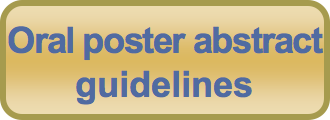 Full guidelines on submitting an oral poster presentation abstract. Full guidelines on submitting an oral poster presentation abstract.
If your abstract is accepted as an oral poster presentation you can find information about preparing your poster and presentating it at the conference on the presenters information page.
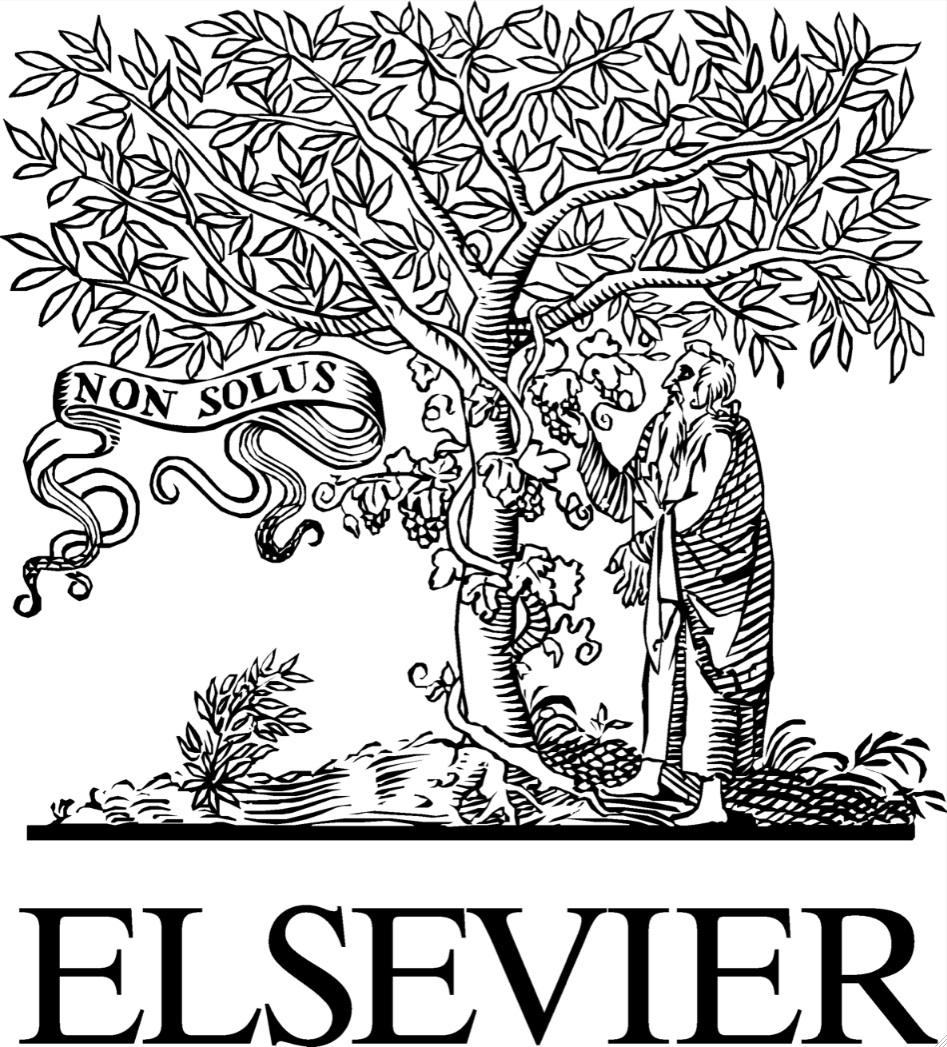 There will be a prize, donated by Elsevier, for the best poster. A panel from the conference scientific committee will judge them during the conference and select the best poster. The oral presentation is not part of this review. Posters will be judged on the following criteria: There will be a prize, donated by Elsevier, for the best poster. A panel from the conference scientific committee will judge them during the conference and select the best poster. The oral presentation is not part of this review. Posters will be judged on the following criteria:
 the contribution the poster makes to healthcare education the contribution the poster makes to healthcare education
 clarity of purpose and message clarity of purpose and message
 accuracy and quality of content accuracy and quality of content
 presentation and impact presentation and impact
 innovation in design. innovation in design.
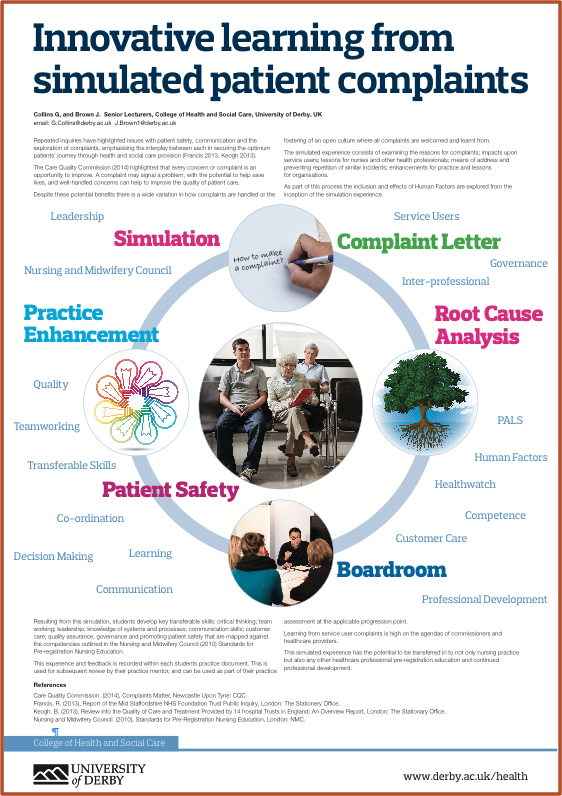 The winners of the best poster prize for NET2015 were: Guy Collins and Jo Brown, Senior Lecturers, University of Derby, UK with their poster: Innovative learning from simulated patient complaints. The winners of the best poster prize for NET2015 were: Guy Collins and Jo Brown, Senior Lecturers, University of Derby, UK with their poster: Innovative learning from simulated patient complaints.
There were also two joint highly commended posters: Helen Croft, Emilie Hindle and Ben Stanesby, Student Nurses, the University of Derby, UK for their poster Developing skills for the future: Student participation and engagement within values based selectio process for prospective nursing students at the University of Derby and Angela King and Ailsa Elliott, Practice Education Facilitators, NHS Lanarkshire Scotland, UK for their poster: Chief nurses' empower student nurses to have a voice.
Back to top
Student abstracts and the Andrew McKie best pre-registration student abstract award
The NET2016 Organising Committee actively encourages papers from pre-registration students in all themes. This is an ideal opportunity for students to share their ideas in theme group sessions in a supportive and inclusive environment.
 Andrew McKie best pre-registration student abstract award Andrew McKie best pre-registration student abstract award
If you wish to be considered for the Andrew McKie best pre-registration award, please ensure that you have indicated this when submitting your abstract.
The winner of the Andrew McKie best pre-registration student abstract award will be offered:
 one free place at NET2016, including onsite accommodation one free place at NET2016, including onsite accommodation
 travel expenses up to £500 travel expenses up to £500
We are delighted to announce that the winner of the Andrew McKie best student abstract award for NET2015 was Jo Appleton, Student Nurse, University of East Anglia, Norwich, UK with her abstract: A student nurse's experience of the 'Collaborative Learning in Practice' coaching model in a mental health ward environment.
 Assisted places for full-time students Assisted places for full-time students
We are also able to offer 1/3 off the registration fee for a limited number of full-time students on a first-come, first-served basis. Please contact the NET conference office to discuss how to reserve one of these places.
Back to top
First-time presenter prize
NET offers an opportunity for those who have not presented at ANY conference before (excluding poster presentations) to present a paper in a supportive environment. A prize of a £50 book voucher will be awarded to the best first-time presenter.
This must be the first-ever presentation at ANY conference and only first-time presenters may give the presentation. If you have a co-author who is not a first-time presenter they may attend the session, but must not take part in the presentation or answer any questions. You may give a joint presentation only if both of you are first-time presenters.
The award criteria are:
 academic content academic content
 presentation skills presentation skills
 ability to engage the audience and respond to questions. ability to engage the audience and respond to questions.
The joint winners of the first-time presenter prize for NET2015 were: Anna Buckby, and Anne Moffat, Practice Educators, NHS Education for Scotland/NHS Lothian, Edinburgh, UK and Jessica Hargreaves, Senior Lecturer, University of Brighton, UK. There were also two joint highly commended first-time presenters: Paula Libberton, Faculty Lead for Practice Learning, University of Southampton, UK and Jean Mason Mitchell, Lecturer in Midwifery, University of Salford, UK.
Please ensure when completing the submission form that you have selected that you are a first-time presenter. There will not be another opportunity to indicate you are a first-time presenter.
Back to top
| General information and guidelines on submitting your abstract |
| NET2016 will be your opportunity to participate fully by presenting a core paper, a theme paper, symposium or poster. Come and present your work, pass on your ideas and share best practice with colleagues.
Abstracts will be selected through double-blind peer review by the International Scientific Panel and the Conference Organising Committee.
The full core papers, abstracts for theme papers, symposia and posters will be made available on our website six weeks before the conference to registered delegates only. The conference information booklet and the keynote papers will be available in printed form in the delegate pack given to you when you arrive at the conference. The abstracts and core papers will also be available on a memory stick as part of this delegate pack and on the NET2016 Conference App.
 abstracts for core papers and theme papers must be between 400–600 words (excluding references) abstracts for core papers and theme papers must be between 400–600 words (excluding references)
 abstracts for a symposium must be no more than 1000 words in total (excluding references) abstracts for a symposium must be no more than 1000 words in total (excluding references)
 abstracts for oral posters must be between 300–400 words (excluding references) abstracts for oral posters must be between 300–400 words (excluding references)
 abstracts for core papers and theme papers must: abstracts for core papers and theme papers must:
 be submitted under one of the three new categories be submitted under one of the three new categories
 be relevant to the theme you indicate the abstract is applicable to be relevant to the theme you indicate the abstract is applicable to
 be written using the structured headings in the relevant downloadable Word template document be written using the structured headings in the relevant downloadable Word template document
 include up to five key words that will enable reviewers to confirm the fit to your chosen theme include up to five key words that will enable reviewers to confirm the fit to your chosen theme
 list three bullet points that indicate how your work contributes to knowledge development in the selected theme list three bullet points that indicate how your work contributes to knowledge development in the selected theme
 all abstracts must be written in English all abstracts must be written in English
 abstracts should be free from jargon, any 'shorthand' and abbreviations, which should be spelt out in full. Bear in mind that delegates from other countries will not always be familiar with your healthcare and educational systems, so brief explanations should always be given abstracts should be free from jargon, any 'shorthand' and abbreviations, which should be spelt out in full. Bear in mind that delegates from other countries will not always be familiar with your healthcare and educational systems, so brief explanations should always be given
 include full references, as appropriate, using the Harvard referencing style (see examples below) include full references, as appropriate, using the Harvard referencing style (see examples below)
 state clearly the names, job titles and institutions of all authors, with full address and contact details of the main correspondent state clearly the names, job titles and institutions of all authors, with full address and contact details of the main correspondent
 use calibri font or similar, and: use calibri font or similar, and:
 title of paper: 11 point, bold title of paper: 11 point, bold
 author/s: name, job title, organisation, town, country. 10 point bold author/s: name, job title, organisation, town, country. 10 point bold
 text of abstract: 9 point text of abstract: 9 point
 abstracts must be received in the NET conference office by Monday 25 January 2016 abstracts must be received in the NET conference office by Monday 25 January 2016
 you will receive an email from us confirming receipt of your abstract. Please contact us at the conference office if you have not received confirmation within 5 working days of submission you will receive an email from us confirming receipt of your abstract. Please contact us at the conference office if you have not received confirmation within 5 working days of submission
 all authors will be told if their abstract has been accepted in March 2016 all authors will be told if their abstract has been accepted in March 2016
 all presenters selected to give core papers, theme papers, symposia and oral poster presentations will be required to register as delegates of the conference and pay the full conference fees all presenters selected to give core papers, theme papers, symposia and oral poster presentations will be required to register as delegates of the conference and pay the full conference fees
 if multiple abstracts are submitted in different themes, please ensure that presenters are available to attend the conference to present the paper/s within the different theme/s. if multiple abstracts are submitted in different themes, please ensure that presenters are available to attend the conference to present the paper/s within the different theme/s.
|
Reference style samples
Kyriacos, U., Van den Heever, J., Phillips, B. (1999) A non-traditional curriculum for the preparation of nurse educators in a developing country. Journal of Nursing Education, 38: 7, 319-325.
Lave, J., Wenger, E. (1991) Situated Learning: Legitimate peripheral participation (2nd edn). Cambridge: Cambridge University Press.
Lea, M., Street, B.V. (2000) Student Writing and Staff Feedback in Higher Education: An academic Literacies approach. In: M.R. Lea, B. Stierer (eds) Student Writing in Higher Education. Buckingham: The Society for Research in Higher Education and Open University Press.
Schmitt, T., Sims-Gibbins, S., Booth, R. (2012) Social media use in nursing education. Online Journal of Issues in Nursing. Available from: http://www.nursingworld.org/MainMenuCategories/ANAMarketplace/ANAPeriodicals/OJIN/TableofContents/Vol-17-2012/No3-Sept-2012/Social-Media-in-Nursing-Education.html (accessed on 7 November 2014)
|
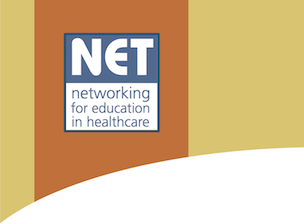
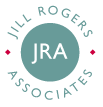


 Three categories of core and theme paper presentations to choose from:
Three categories of core and theme paper presentations to choose from:

 The winners of the best poster prize for NET2015 were: Guy Collins and Jo Brown, Senior Lecturers, University of Derby, UK with their poster: Innovative learning from simulated patient complaints.
The winners of the best poster prize for NET2015 were: Guy Collins and Jo Brown, Senior Lecturers, University of Derby, UK with their poster: Innovative learning from simulated patient complaints. Andrew McKie best pre-registration student abstract award
Andrew McKie best pre-registration student abstract award Assisted places for full-time students
Assisted places for full-time students